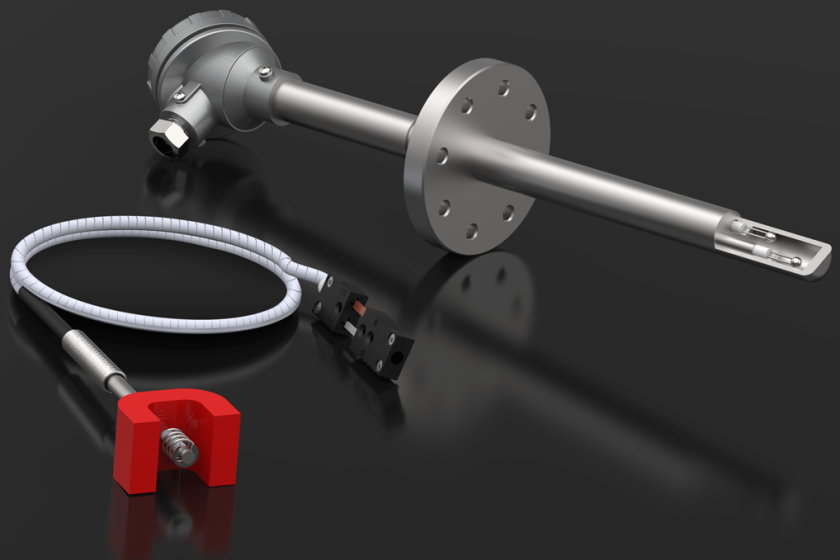The world of temperature measurement is constantly evolving, and at the heart of this evolution are thermocouple thermometers. Renowned for their versatility and accuracy, thermocouple thermometers are essential tools in a wide range of industries, from manufacturing to food processing. In this blog, we’ll explore the latest innovations in thermocouple technology, with a particular focus on developments from thermocouple manufacturers in India, and speculate on what the future holds for this vital instrument.
The Current State of Thermocouple Technology
Thermocouple thermometers work on a simple yet profound principle: when two different metals are joined at one end, they produce a temperature-dependent voltage at the junction, which can be translated into a temperature reading. This technology has been around for decades, but recent advancements have significantly enhanced its capabilities.
Enhanced Materials and Design
The materials used in thermocouple wires have seen significant improvements. Manufacturers are now using alloys that offer better accuracy and durability, even in extreme conditions. This means thermocouples can now be used in a wider range of environments, from the freezing cold of Arctic explorations to the scorching heat of blast furnaces.
Digital Integration and IoT
Digital technology integration is perhaps the most exciting advancement. Modern thermocouple thermometers often come equipped with digital displays, USB connectivity, and even wireless capabilities. This integration allows for easier data logging, remote monitoring, and real-time analysis, essential for industries requiring precise temperature control and monitoring.
Miniaturization
Another key development is the miniaturization of thermocouple sensors. Today’s thermocouples are smaller, more responsive, and less invasive, making them ideal for applications where space is limited or where minimal disturbance to the measurement environment is crucial.
Thermocouple Manufacturers in India: Pioneering Innovations
In the ever-evolving landscape of the global thermocouple market, India has unequivocally emerged as a powerhouse, playing a pivotal role in shaping the industry’s trajectory. Notably, Indian manufacturers aren’t merely aligning with global trends; they are at the forefront, spearheading innovative strides that contribute significantly to the field’s evolution. This proactive approach positions India as a dynamic hub for cutting-edge advancements, where collaborative endeavors and a commitment to excellence underscore its enduring impact on the global thermocouple market.
Focus on Quality and Precision
Indian manufacturers have placed a strong emphasis on quality and precision. By adopting international standards and investing in state-of-the-art manufacturing facilities, these companies ensure that their thermocouple products meet global demands for accuracy and reliability.
Customization and Flexibility
Another area where Indian manufacturers excel is in the customization of thermocouples. Understanding that different industries have unique needs, these manufacturers offer tailor-made solutions. This approach has made them particularly popular in sectors like aerospace, petrochemicals, and pharmaceuticals, where specific requirements are the norm.
Cost-Effectiveness
Indian thermocouple manufacturers have also mastered the art of producing high-quality instruments at competitive prices. This cost-effectiveness does not come at the expense of quality but is a result of efficient manufacturing processes and economies of scale.
What’s Next for Thermocouple Technology?
As we peer into the future, the landscape of thermocouple thermometers is poised for exciting transformations, driven by cutting-edge advancements in various domains. The following trends are expected to shape the evolution of thermocouples in the coming years, paving the way for enhanced precision, efficiency, and sustainability.
- Nanotechnology Revolution: The integration of nanotechnology stands out as a groundbreaking trend that holds the potential to revolutionize temperature measurement through thermocouples. The utilization of nanomaterials in thermocouples is anticipated to result in even more precise and responsive devices. This innovation not only opens up new possibilities in scientific research but also extends into the realm of nanotechnology applications, ushering in a new era of accuracy and sensitivity in temperature sensing.
- Advanced Wireless Capabilities Unleashed: As wireless technology continues its relentless march forward, future thermocouples are expected to incorporate more sophisticated wireless features. This evolution may include extended wireless range, lower power consumption, and enhanced data transmission capabilities. These improvements will make remote monitoring more efficient and effective, catering to diverse industries and applications where real-time temperature data is paramount.
- AI and Machine Learning Integration: The fusion of artificial intelligence (AI) and machine learning is poised to play a pivotal role in the future of thermocouples. The incorporation of AI capabilities could empower thermocouples to provide predictive maintenance, automatically calibrating and adjusting themselves for optimum performance. Moreover, these smart thermocouples may possess the ability to predict system failures before they occur, enhancing overall reliability and reducing downtime in critical processes.
- Embracing Sustainable Manufacturing Practices: With sustainability gaining prominence across industries, thermocouple manufacturers are anticipated to respond by adopting more environmentally friendly manufacturing practices. The future may witness thermocouples produced using sustainable materials and manufacturing processes, thereby minimizing their environmental impact. This eco-conscious approach aligns with the global push towards greener technologies and underscores the commitment of the industry to responsible and sustainable innovation.
- Integration with Other Technologies for Comprehensive Monitoring: An exciting frontier in the evolution of thermocouples lies in their integration with other sensor technologies. Future thermocouples could seamlessly combine temperature data with measurements of pressure, humidity, or other environmental factors. This integration promises to offer a more comprehensive and holistic view of the environments they monitor, providing valuable insights for industries ranging from manufacturing to climate control.

